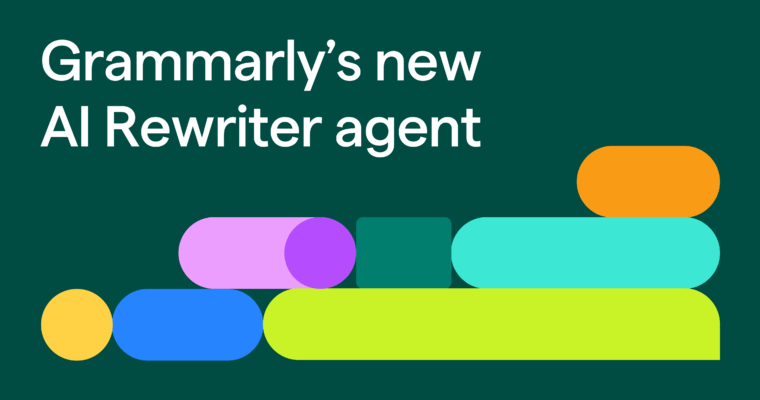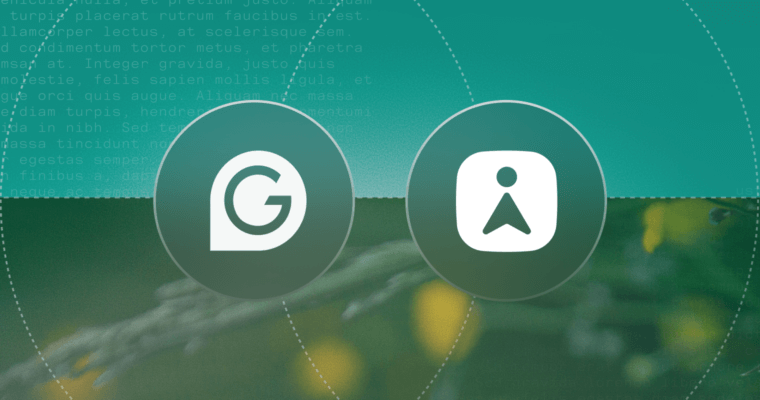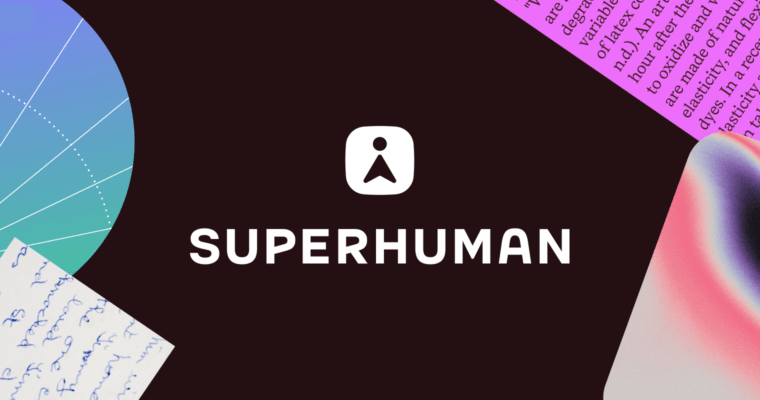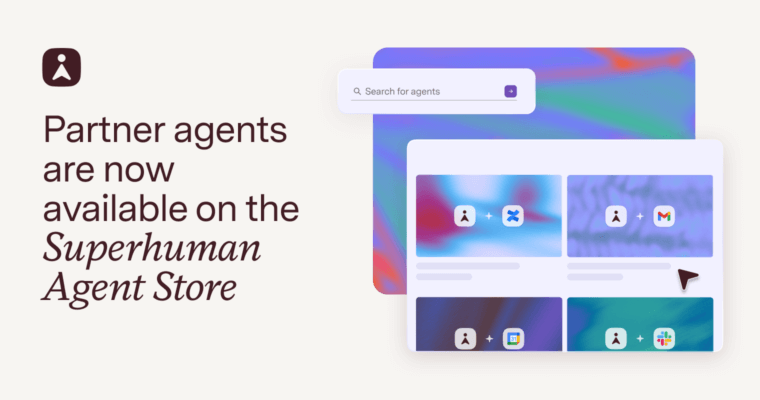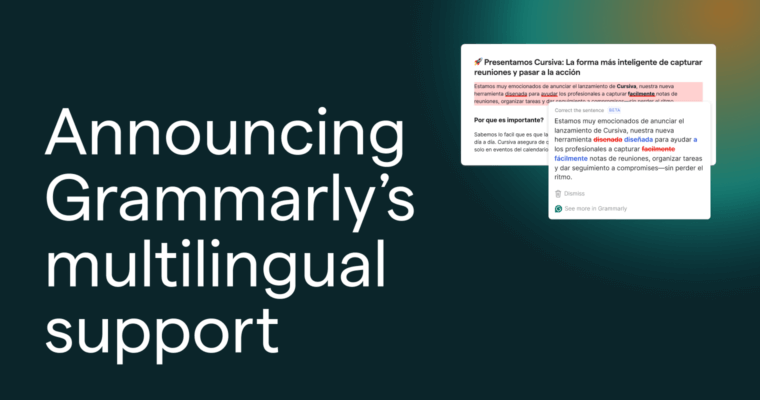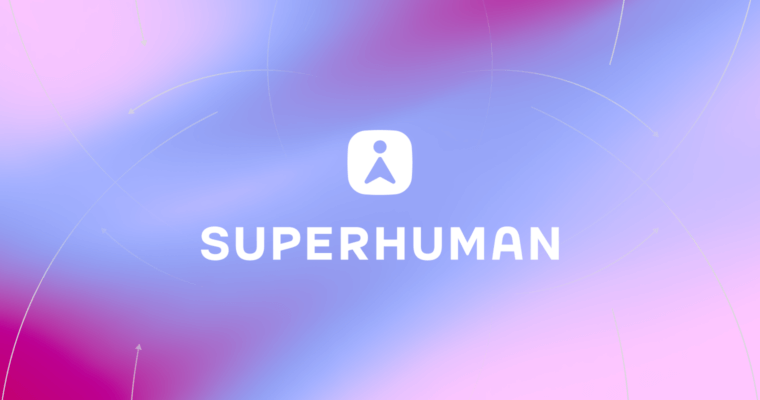
A new name for us. And new powers for you.
You might think you’ve only recently started writing with AI. But if you’re one of the 40 million people who use Grammarly every day, you’ve been writing with AI for years.
Except you don’t think of it as AI. You probably don’t think of it at all. You just type, and corrections appear—in every app, on every device—without you having to ask.
It’s like flipping a light switch, turning on the tap, or catching the metro. When technology works everywhere, it starts to feel ordinary. And that usually means something extraordinary is happening under the hood.
That’s what we’ve worked to deliver with Grammarly: writing help that’s so ubiquitous and automatic that you can take it for granted. Any time you type, Grammarly makes sure the wrong words don’t get in your way. It’s a simple expectation, supported by complex infrastructure. It required laying down rails in thousands of apps to help you in every text box, and tuning AI to instantly provide helpful suggestions as you type. We created our own mass transit system to deliver AI in every app quickly and reliably. But until now, Grammarly was the only agent on the tracks.
Today, we’re adding a whole team of agents that help you write, research, anticipate feedback, automate tasks, schedule meetings, and much more. Just like Grammarly, these agents don’t sit idle in one of your tabs, waiting for you to ask for help. They meet you where you work so you don’t have to change how you work. We are expanding far beyond writing, and to mark this new ambition, we’re making a couple more changes.
First, our name: the Grammarly product will still exist, but we’re changing our company name to Superhuman. Second, we’re evolving from a single product to a suite that includes Grammarly’s trusted writing partner, Coda’s all-in-one workspace, Superhuman Mail’s AI-native inbox, and a new product called Superhuman Go. These are all available today as a bundled subscription.
Whether you try one product or the whole Superhuman suite, we hope you’ll feel momentum as it automates a rote workflow or writes in your voice. More importantly, though, we hope the AI will feel so natural that using it will feel ordinary; so built-in to the way you work that you forget it’s even there. It starts with Superhuman Go.
Superhuman Go: AI that works everywhere you do.
Like Grammarly, Superhuman Go works in every application and tab. But instead of a single agent that helps you write, Go has a whole team of agents that can brainstorm, fetch information, send emails, schedule meetings, and more.
What makes Go special is (1) it works in all the apps you already use, and (2) it helps without you needing to ask. Everywhere you are, Go will look for opportunities to say something better, or do something faster.
For example, Go will bring any information you need in-line, so you don’t have to pause what you’re doing to look something up. If you’re in a conversation thread, and someone suggests scheduling a meeting, Go will surface your availability and help you book the meeting in the moment. It’s a small time saver, but one that adds up to make a big difference.
Or, if you’re writing an email to a customer, Go will activate multiple agents to make sure every word is as convincing as possible. It’ll fine-tune your language to be professional and upbeat, pull the relevant product pricing from your CRM, and flag a recent support issue so you can acknowledge the hiccup. Everywhere you interface with this customer, Go will be there helping you tune into the plans and pain points they care about.
With the Superhuman Agents SDK, your own agents can also work in every app. If you’ve built an internal chatbot trained on your company’s data, you can add it to Go, and it’ll show up any time your team needs a stat or an official spiel. Your team won’t need to change how they work; the resources will come to them.
Many of our partners have already started building new agents for Go. Agents from Common Room, Radical Candor, Latimer, Fireflies, Parallel, Speechify, and Quizlet are available today, with more coming soon from Saifr, Axios HQ, and Napkin AI.
Superhuman Go adds a layer of proactive AI to the tools that we all use every day, making every app connected and intelligent. But what if the apps themselves were more proactive?
Coda + Mail: proactive AI at full power.
To answer this question, we decided to start with the surfaces where we all collaborate most often—where we address people, assign tasks to them, and build on ideas together. What would it be like for a doc to write with you, or for an inbox to respond to incoming requests?
That’s why we acquired Coda and Superhuman Mail earlier this year. Both apps, like Grammarly, already have a lot of the infrastructure for proactive AI.
Coda docs already sync data from other apps to create a single source of truth. Soon they will also act on that data for you. For example, when your meeting ends, Coda will automatically process the notes into action items and offer to assign them. If during the meeting, people were excited about an idea, Coda will offer to turn it into a brief by giving you an instant draft that you can shape. Under your direction, Coda will extend a line of thought, pull in research, and anticipate reactions before you share it. In a few minutes, the conversation will turn into the plan.
Superhuman Mail already organizes your inbox proactively and writes replies that sound like you. Soon these drafts will also incorporate details about your work gathered from your inbox, CRM, and other tools. As your priorities change and your schedule shifts, your inbox will respond to show you what’s most important, and the auto-drafted replies will include the right context. All you will have to do is simply edit, then send. And in many cases, you won’t have to edit at all.
How we’ll live up to our new name.
Today AI feels like something we have to learn to manage or tame. We have to remember to use it and we have to think hard about what we ask it. We nudge it through a series of prompts and then paste the output wherever we’re working. It’s an astounding power, to be sure, but it’s a power that feels outside of us. By leveraging the infrastructure we’ve built to deliver Grammarly, we can bring that outside power inside. You don’t have to pause, prompt, paste, or even think about it. The AI naturally fits into where you work, and only then does it really start to change how you work.
At first, you think faster and more deeply. Soon, you never drop the ball. And before you know it, you have the time to be more creative, strategic, and impactful — free to do what only you can do. Learn more here.

